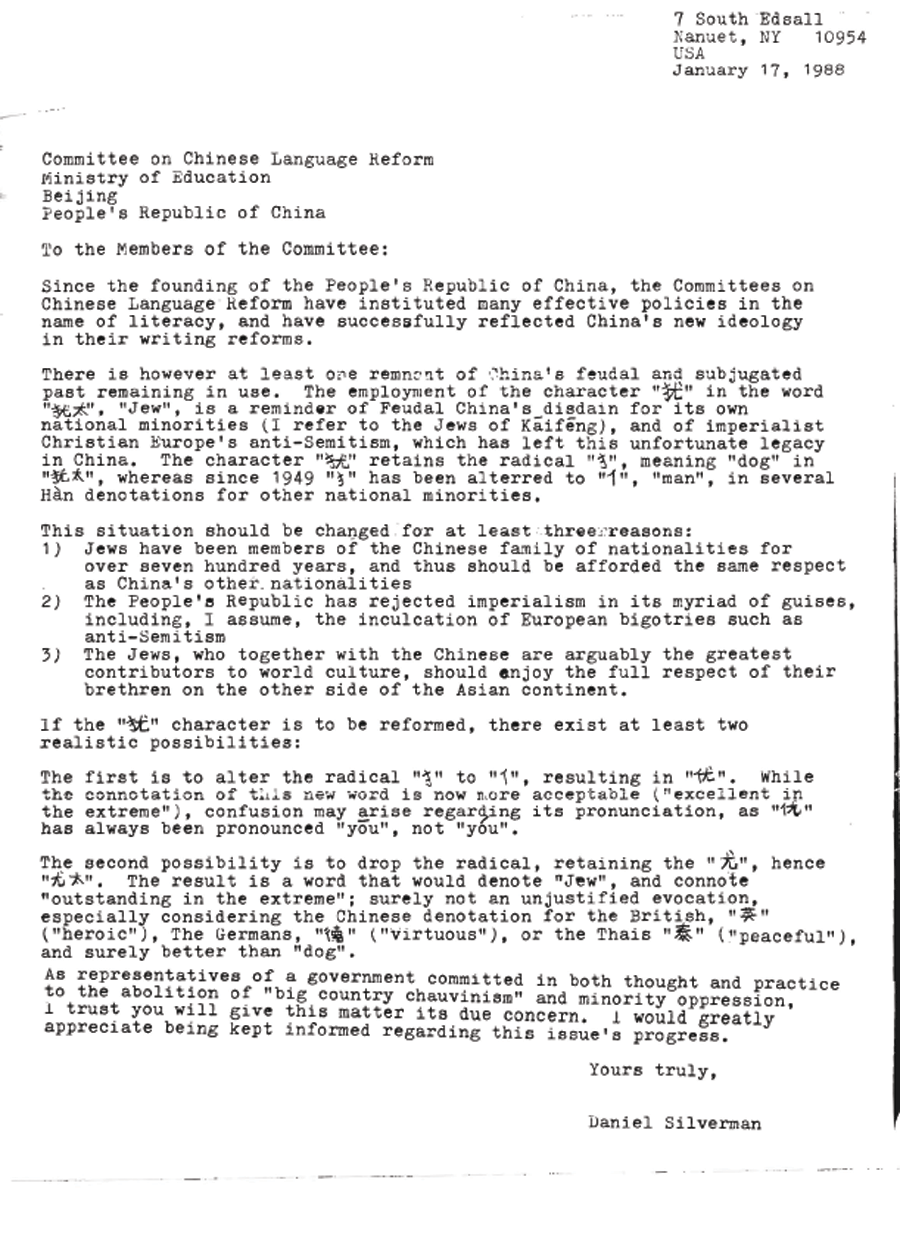| On The Chinese Character For "Jew" | ||
Committee on Chinese Language Reform To the Members of the Committee: Since the founding of the People's Republic of China, the Committees on Chinese Language Reform have instituted many effective policies in the name of literacy, and have successfully reflected China's new ideology in their writing reforms. There is however at least one remnant of China's feudal and subjugated past remaining in use. The employment of 'the character "犹" in the word "犹太" , "Jew", is a reminder of Feudal China’s disdain for its own national minorities (I refer to the Jews of Kaifeng), and of imperialist Christian anti-Semitism, which has left this unfortunate legacy in China. The character "犹' retains the radical "犭" , meaning "dog" in "犹太", whereas since 1949 "犭" has been altered to "亻", "man", in several Han denotations for other national minorities. This situation should be changed for at least three reasons: 1) Jews have been members of the Chinese family of nationalities for over seven hundred years, and thus should be afforded the same respect as China's other nationalities 2) The People's Republic has rejected imperialism in its myriad of guises, including, I assume, the inculcation of European bigotries such as anti-Semitism 3) The Jews, who together with the Chinese are arguably the greatest contributors to world culture, should enjoy the full respect of their brethren on the other side of the Asian continent. If the "犹" character is to be reformed, there exist at least two realistic possibilities: The first is to alter the radical "犭" to "亻", resulting in “优太". While the connotation of this new word is now more acceptable ("excellent in the extreme") , confusion may arise regarding its pronunciation, as "优" has always been pronounced "yōu", not "yóu". The second possibility is to drop the radical, retaining the "尤" , hence "尤太". The result is a word that would denote "Jew", and connote "outstanding in the extreme"; surely not an unjustified evocation, especially considering the Chinese denotation for the British, "英" ("heroic") , The Germans, "'德" ("virtuous"), or the Thais "泰" ("peaceful"), and surely better than "dog". As representatives of a government committed in both thought and practice to the abolition of "big country chauvinism" and minority oppression, l trust you will give this matter its due concern. l would greatly appreciate being kept informed regarding this issue's progress. Yours truly, Daniel Silverman
|

















